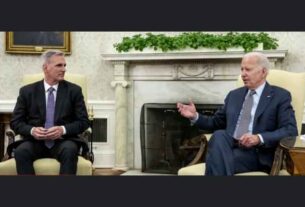THE CONVICTION UPHELD
Steve Bannon, the controversial former adviser to Donald Trump, faces potential imprisonment after a federal appeals court upheld his criminal conviction for defying a subpoena from the Jan. 6 House select committee. The ruling reaffirms Bannon’s guilt and could see the populist strategist serving a four-month jail sentence.
Background of Conviction of Steve Bannon
In 2022, Bannon was sentenced to four months in prison by U.S. District Judge Carl Nichols after a jury found him guilty on two counts of contempt of Congress.
Bannon had refused to appear before the Jan. 6 committee investigating the Capitol attack, citing executive privilege and testimonial immunity.
Judge Nichols, however, postponed the jail term pending Bannon’s appeal, acknowledging the complex legal issues involved.
Appeals Court Decision
A three-judge panel from the D.C. Circuit Court of Appeals unanimously rejected Bannon’s arguments.
The panel, comprising judges appointed by Barack Obama, Donald Trump, and Joe Biden, stated in their 20-page opinion that Bannon had no legal basis for his blanket refusal to comply with the subpoena.
They upheld the conviction, emphasizing that precedent did not support Bannon’s defiance.
David Schoen, Bannon’s lawyer, announced plans to seek an en banc review by the full 11-member bench of the D.C. Circuit Court of Appeals.
If denied, Bannon may petition the Supreme Court. Schoen criticized the decision, arguing it sets a dangerous precedent for future political abuses of congressional hearing processes.
Justice Department’s Move
Following the appeals court’s decision, the Justice Department urged Judge Nichols to enforce Bannon’s prison sentence immediately.
They emphasized that the appeals court had dismissed all of Bannon’s arguments, including his primary claim regarding the mental state required for a contempt conviction.
The DOJ argued that Bannon should begin his sentence unless he could prove that his appeal raised substantial questions likely to result in reversal.
Broader Implications
The ruling against Bannon marks a significant victory for Congress, establishing a firm stance against those who defy subpoenas.
It follows similar outcomes for other Trump aides, such as Peter Navarro, who also received a four-month sentence for contempt of Congress related to the Jan. 6 investigation.
Bannon and Navarro had devised the “Green Bay Sweep,” a strategy aimed at delaying the certification of electoral votes to buy time for GOP legislatures to appoint pro-Trump electors.
Both men refused to comply with the Jan. 6 committee’s demands, claiming executive privilege, which the courts ultimately rejected.
Next Steps for Steve Bannon
The timing of Bannon’s prison reporting remains uncertain as legal maneuvers continue. Judge Nichols has given Bannon until Monday to respond to the DOJ’s request.
The unfolding legal battle underscores the broader consequences for those obstructing congressional investigations, reinforcing the accountability mechanisms in place.
Conclusion
Steve Bannon’s upheld conviction for contempt of Congress signifies a pivotal moment in the ongoing legal and political ramifications of the Jan. 6 Capitol attack.
As Bannon prepares for possible imprisonment, the case highlights the judiciary’s role in upholding the rule of law and congressional authority.
Also Read : GAZPROMS’ Global Strategic Moves By Chief Miller and President Putin




